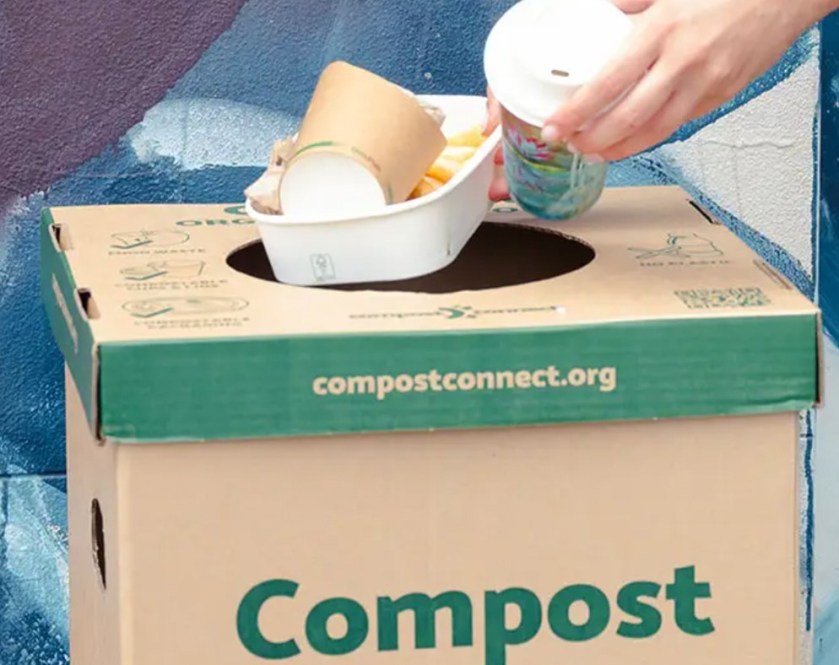Commonwealth Bank of Australia (CBA) is one of Australia’s largest employers. We care about the impact we have on the environment now, and into the future, and understand that small changes add up and make a real and lasting difference.
With more than 40,000 employees, our commercial buildings in Sydney can create a lot of green waste, including organics, packaging and food waste from the internal cafes and meeting facilities. By partnering with BioPak and Compost Connect, this waste is now being turned into nutrient-rich compost and has supported our journey to carbon neutrality by helping to reduce emissions.
In today’s busy world, not everyone has the time to sit down and have lunch these days. Purchasing a grab-and-go meal from one of the multiple catering, cafes and food service facilities in each CBA building is a popular option for many people.
CBA’s Executive Chef Lee Hardy and his catering team have the responsibility to provide delicious and nutritious food options for purchase by employees within the four Sydney commercial buildings, cafes, and internal conference and meeting facilities. With such a large scale operation they realised they had one problem – the packaging for the food produced a lot of waste!
‘Green bins’ were implemented throughout our Sydney buildings to ensure all food waste and compostable BioPak packaging was being collected and composted. We also installed signage and organised information sessions for the team to ensure our new ‘Eco Disposal’ system was being used correctly. We called on BioPak to help us find an end-of-life solution for our compostable packaging and waste and out us in touch with Compost Connect.
Not having to separate the food waste from the packaging is the key to the success of this initiative. Employees at CBA simply enjoy their lunch in a compostable BioPak container and dispose of any leftovers and/or the container in any of the green bins around the building (and there are a lot).
What is Compost Connect?
Compost Connect helps businesses connect with Compost Partners to collect food waste and compostable packaging, transport it to an industrial composting facility and turn it into nutrient-rich compost soil.

The result
By signing up to Compost Connect and switching to BioPak compostable packaging, Lee says they’ve drastically reduced what they send to landfill by collecting their food waste and packaging to be turned into compost.
“We’ve gradually gone from a couple hundred kilos a week, to 1 tonne (1,000 kilos) a week now of organic compostable waste.”
Composting can often be a cheaper disposal option that is undoubtedly better for the planet. The compost produced can also be bought back by the company, restaurant or cafe to be used in herb gardens and more.
Collectively across the CBA commercial buildings, we divert 7 tonnes of organic waste from landfill a month, and expect this will increase to 10 tonnes as employees continue returning to the office. This means CBA will be diverting 120 tonnes of organic waste a year from landfill! This will in turn create 84 tonnes of compost per year, equalling 8,400 x 10kg bags of compost a year. This avoids the creation of 61,200 kg of carbon emissions, which is equal to the removal of 17 cars from the road or driving a new car 230,311 km which is the equivalent of nine laps around Australia.
Watch the video below to see how easy it was to implement and how positively the CBA staff have responded.



